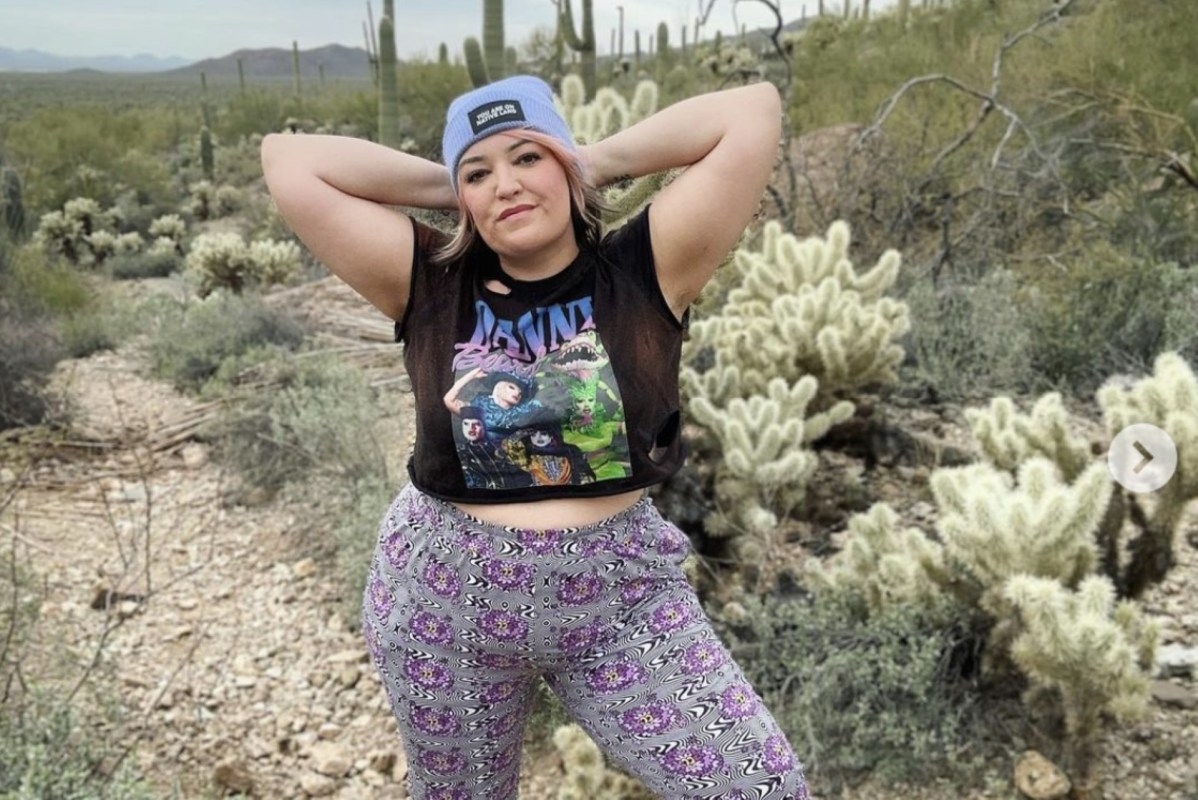Unlikely Hikers founder Jenny Bruso was never an outdoorsy kid.
But when she discovered hiking as a hobby, it was an experience she now compares to falling deeply in love. That was ten years ago in the Columbia River Gorge, where Bruso first experienced the therapeutic benefits of walking in nature.
Those benefits have been hard-won. As a plus-sized woman, Bruso has struggled to feel represented within the wider outdoors community — something that she believes is preventing other people of all shapes, sizes, and ethnicities from taking up hiking themselves.
To destigmatize plus-sized adventuring, Jenny Bruso founded Unlikely Hikers in 2016 as a nationwide hiking group tailored for people who feel less seen in the outdoors industry, whether they are plus-sized, black, indigenous, queer, trans, non-binary, neurodivergent, or experiencing physical disabilities.
"These value judgments and the systems that uphold [some people also] hold so many of us back from finding our joy in our bodies and in movement," Bruso said on the Unlikely Hikers podcast in 2020. "I didn't discover my love of hiking or the outdoors until about eight years ago, in part because of this."
Spending time in nature can have palpable effects on health and well-being, including reducing feelings of stress, improving memory, increasing attentiveness, and mitigating high blood pressure.
Yet people from marginalized groups are far less likely to have easy access to the outdoors. People of color made up just 23% of visitors to America's over 400 national parks between 2010 and 2020, according to one government survey.
Part of that is due to historic neglect. In the U.S.'s 100 biggest cities, majority non-white communities have access to 44% less green space than majority white populations.
But it's also a social problem. Research has found that minority groups tend to feel unsafe or unwelcome at nature activities.
At Unlikely Hikers, an inclusive and accessible hiking format opens the outdoors up to marginalized people. Every group hikes slowly together, covering about three miles at heights of up to 300 feet, on routes designed for invisible disabilities, mobility aids, and plus-sized bodies.
Each time Unlikely Hikers leads a group, it donates to a cause supporting one of the First Nations that lives on the land that the hikers are visiting.
Bruso also recently turned her attention to hiking gear, which she says is not made with plus-sized bodies in mind. A new partnership with Gregory Packs has unveiled a line of backpacks that are completely resized and made to fit multiple body shapes so plus-sized adventurers can wear their packs more comfortably.
"I think the standard 'outdoorsy' person up to this point has been the white, thin, usually young, affluent person who has all of the right gear," Bruso told OPB. "But Unlikely Hikers isn't about that storyline. It's about everybody else who's just trying to get into the outdoors in whatever ways feel good for them, even if they don't feel represented."
Join our free newsletter for cool news and cool tips that make it easy to help yourself while helping the planet.









